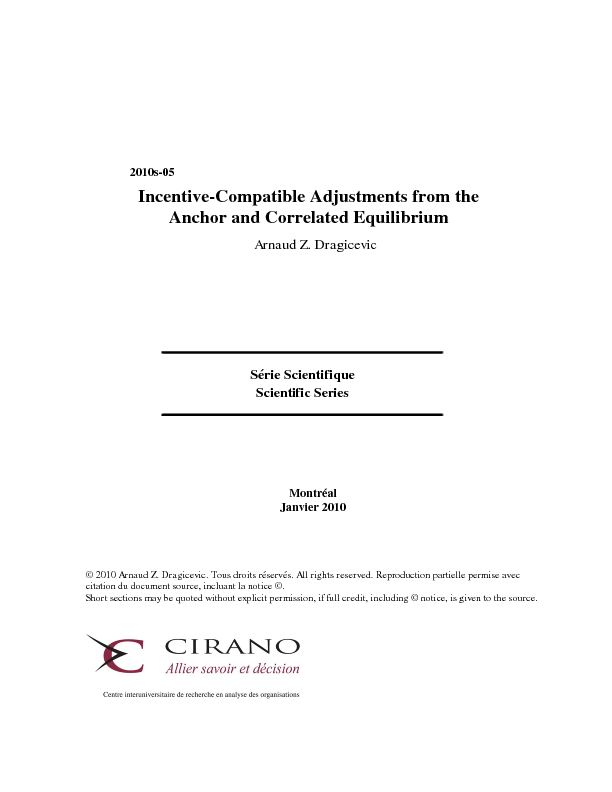Incentive-Compatible Adjustments from the Anchor and Correlated Equilibrium
In repeated-round auction mechanisms with endogenous market-clearing prices, i.e. when prices depend on submitted bids, the assumption of independent private values that underlines the property of incentive-compatibility is to be brought into question; even if these mechanisms provide active involvement and market learning. In its orthodox view, adaptive bidding behavior imperils incentive-compatibility. When agents operate in a correlated equilibrium, we show that neither the incentive-compatibility constraints nor the public signals issued from others' bids are ignored. In order to maximize their expected payoffs, boundedly rational agents adjust from their anchor in the direction of the last posted price. They bid sincerely as long as the adjustment is made pursuant to the bounded memory weighting.
[ - ]




